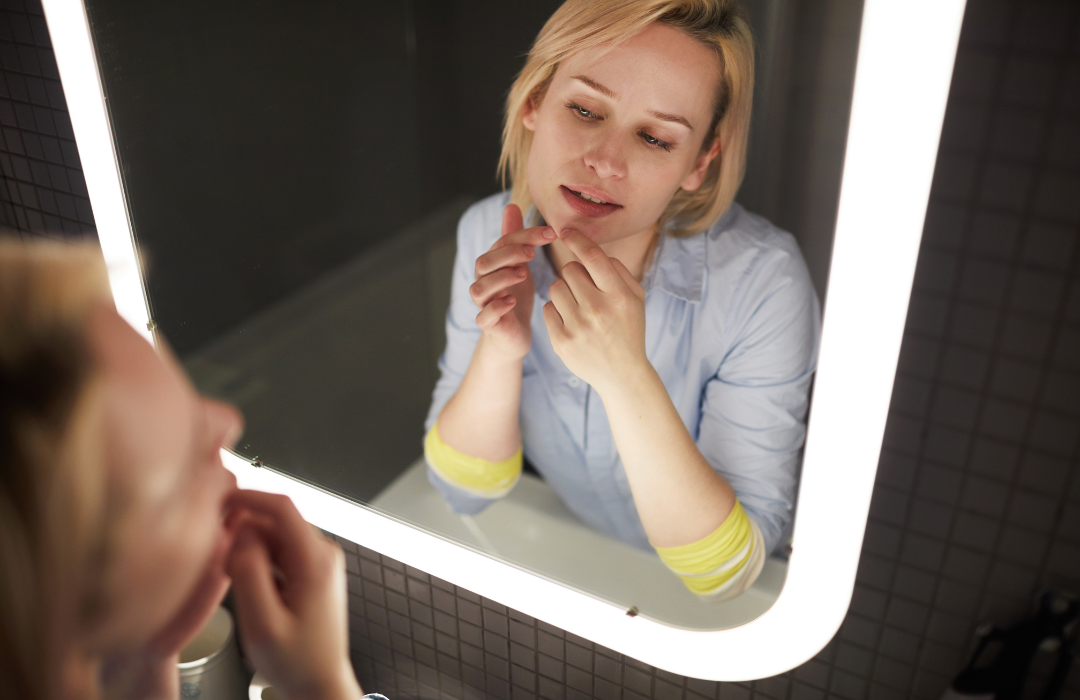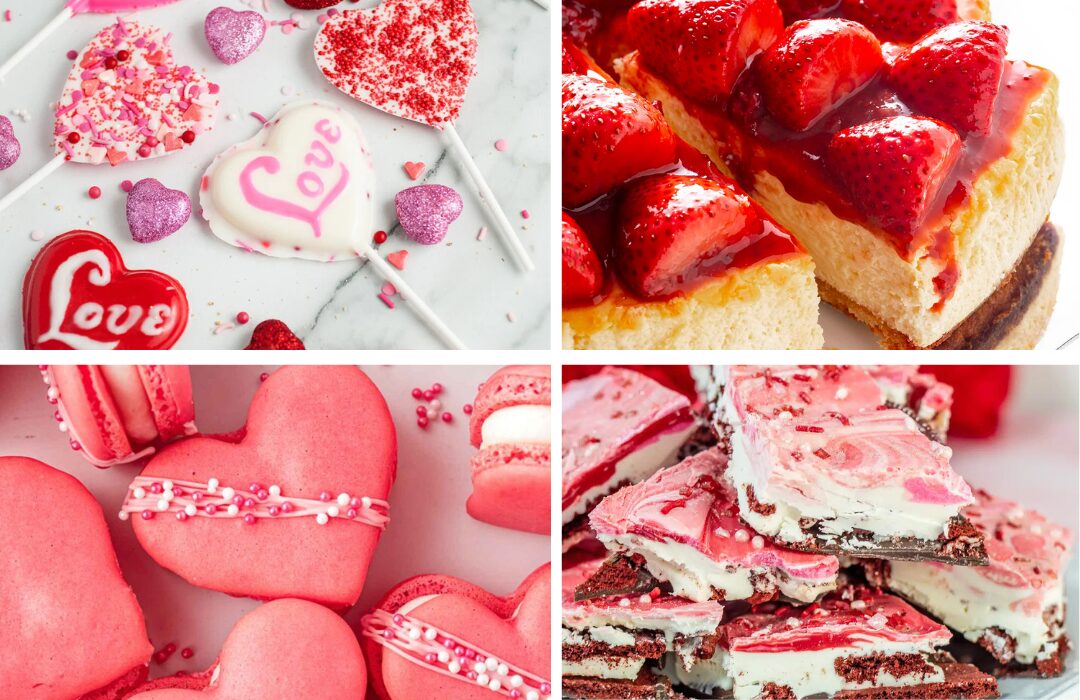Note: As an affiliate, I earn a small commission from qualifying purchases made through links in this post. This helps support my work, but it won't cost you any extra. For more information, please read my full disclosure here.
This blog is your go-to guide on ‘Should You Pop Your Pimples.’ Not only will it help you decide whether to pop or not, but it will also offer handy tips to keep acne at bay!
I bet you’ve had that moment, staring at the mirror with a pesky pimple, wondering if you should just give in and squeeze it.
It’s weirdly tempting, right? There’s something oddly satisfying about popping pimples. It’s like many of us find a guilty pleasure in that little ‘pop’ sound.
Back in the day, whenever I had a major breakout, I’d get all sorts of advice. ‘Just pop it, and it’ll go away faster,’ they said.
But I always hesitated. Instead of going on a pimple-popping spree, I chose to leave them alone. Why, you ask? I’m here to share all about that, and trust me, there’s some pretty compelling stuff to consider.
While most skincare enthusiasts would tell you to never pop a pimple, there are actually times when it’s okay.
Yes, really! Sometimes, under the right conditions and with the right technique, it can even be beneficial.
And if you’re not sure about doing it yourself, dermatologists can step in to handle it safely, or they can guide you on how to manage it at home.
Let’s embark on this journey together, where I’ll share insights, bust some myths, and help you navigate the to-pop-or-not-to-pop conundrum.
Why Popping Pimples Can Be a No-No
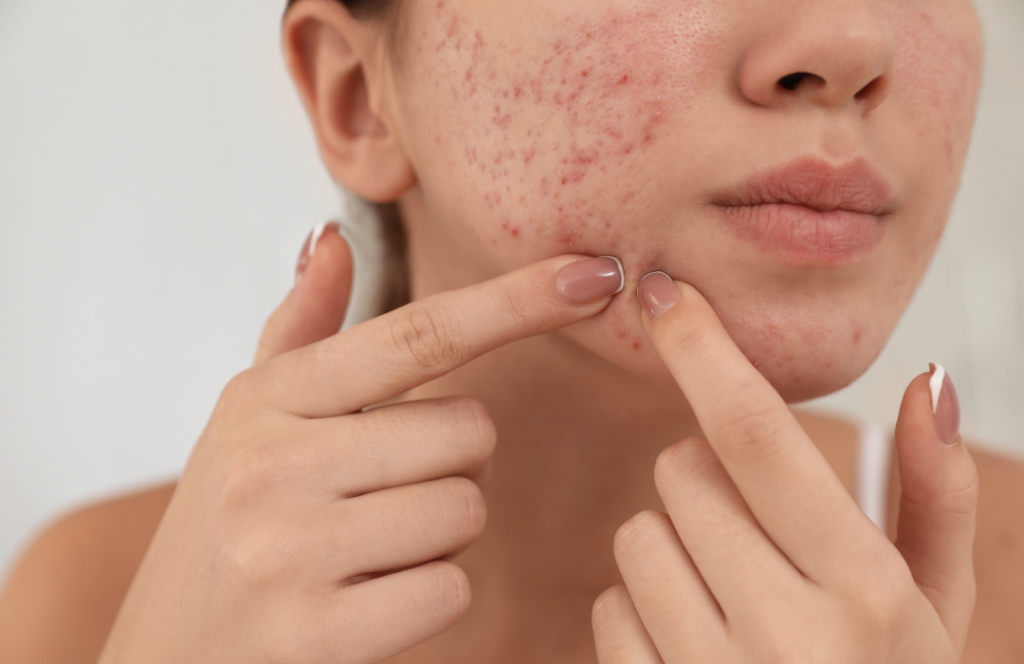
You see that blemish staring back at you in the mirror and it feels like it’s just begging to be popped. But, let’s pause for a moment and consider why this might not be such a great idea.
1. Risk of infection
This is a biggie. When you pop a pimple, you’re basically tearing open your skin. This not only exposes the pore to all the bacteria on your skin (and hands), but it can also push bacteria deeper into the pore. This will lead to a red, inflamed, and possibly more noticeable pimple.
2. Scarring
Our skin is pretty resilient, but it’s not fond of being poked and prodded. Popping pimples can damage the skin tissue around the pore, leading to scarring. And these scars can stick around much longer than the pimple would have. I’ve been there, and trust me, dealing with a scar is a lot more frustrating than waiting out a pimple.
3. Spreading the acne
It sounds counterintuitive, but popping a pimple can actually lead to more pimples. How? Well, when you pop a pimple, the gunk (a lovely mix of oil, dead skin, and bacteria) can spread to nearby pores. It’s like giving acne a free pass to travel across your face. And that’s definitely not what we want.
4. Inflammation and irritation
When you attack a pimple, your skin goes into defense mode, leading to redness, swelling, and irritation. Sometimes, this reaction can make the pimple more noticeable than it was before.
5. Delayed healing
Popping a pimple disrupts the natural healing process. Our skin knows how to heal itself, but when we interfere, we slow down this process. And that pimple you hoped to get rid of sticks around longer.
When to Leave Your Pimples Alone
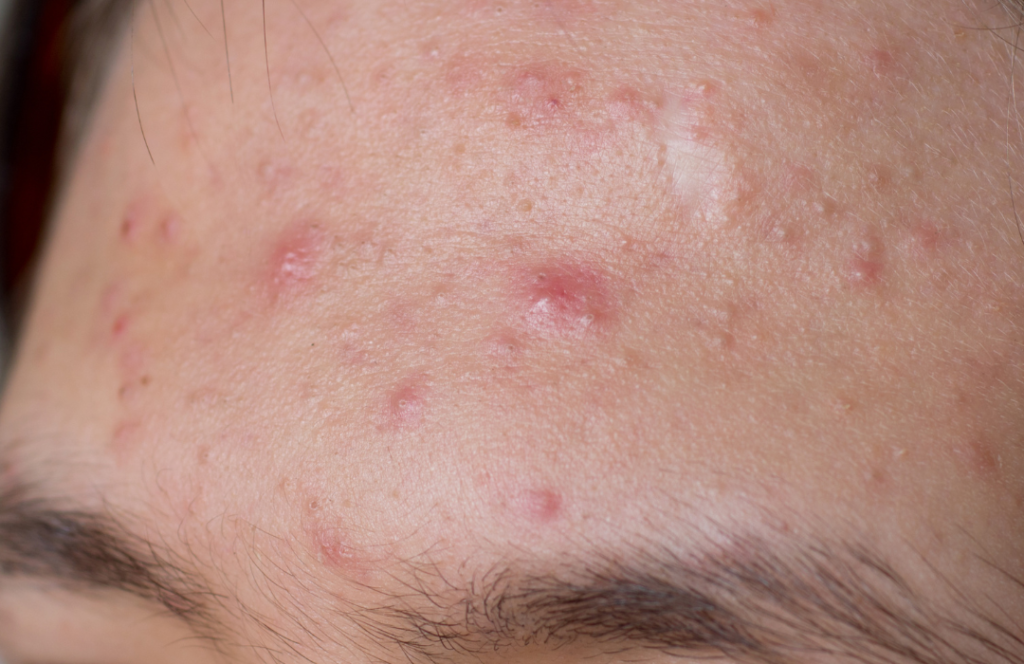
Sometimes, with pimples, the best action is no action. Here’s why and when you should resist the temptation:
1. When it’s red and painful
If you’ve got a red, painful pimple (you know, those big, red, sore ones), it’s best to leave it alone. These are usually cystic acne, and trying to pop them can push the infection deeper, making it worse. Plus, these types of pimples are more likely to scar. Patience is key here!
2. If it’s still under the skin
Feel a bump that hasn’t surfaced yet? These are brewing pimples that aren’t ready for any kind of treatment. Popping or picking at them can cause more inflammation and even lead to scarring.
3. When there’s no white head
A pimple without a white head, like a blackhead or a small red bump, isn’t going to pop. Trying to force it can damage your skin and introduce more bacteria to the area.
4. When it’s actually not a pimple
Sometimes, what looks like a pimple isn’t a pimple at all. It could be a mole, ingrown hair, or something else that definitely shouldn’t be popped. When in doubt, leave it out.
5. If you have a habit of picking
If you find yourself picking at your skin often (we’ve all been there), it’s better to leave pimples alone. Picking can become a habit, leading to more skin issues like infections and scarring.
Types of Pimples That Might Be Safe to Pop
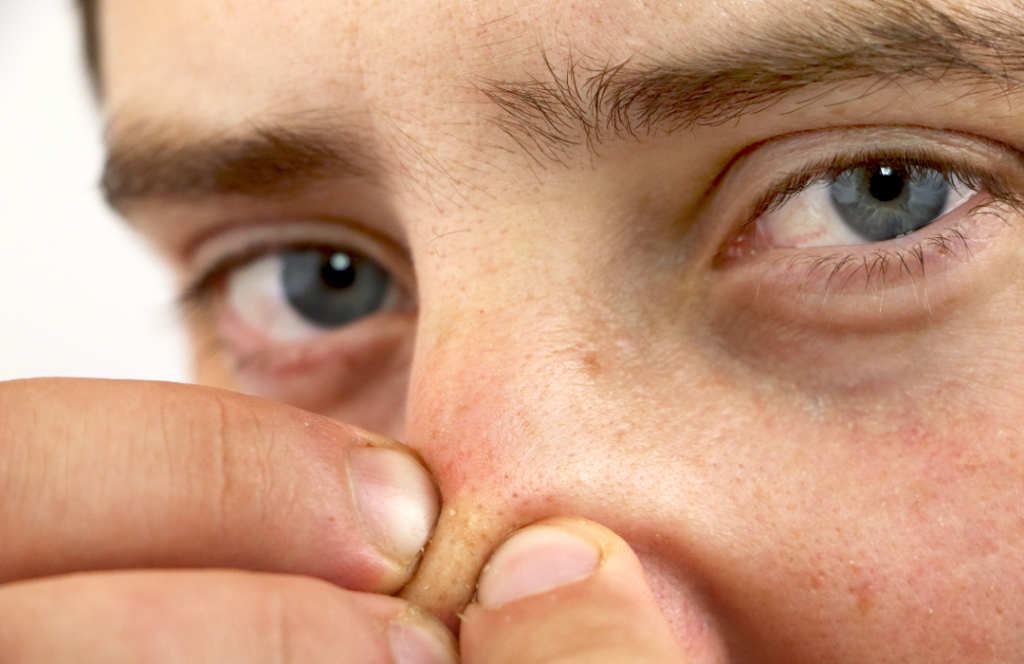
Sometimes it’s hard to resist popping your pimples. So, if you’re going to do it (and I’m not saying you should!), here are the types of pimples that might be safer to pop.
Ripe whiteheads
These are the classic, small pimples with a white, pus-filled head. If a whitehead looks like it’s on the surface of your skin and the skin around it isn’t red or inflamed, it’s probably safe to gently pop. But be super gentle!
Pustules
Similar to whiteheads, pustules are also filled with pus (lovely, I know). They tend to be a bit bigger and might be red around the base. If you’re dealing with a pustule that’s come to a head and doesn’t feel too sore, it’s usually okay to pop. But again, gentle is the name of the game.
Blackheads
These are open pores clogged with oil and dead skin that have oxidized, giving them that dark appearance. Sometimes, gentle pressure can help extract a blackhead, but be careful – too much squeezing can cause irritation.
The Right Way to Pop (If You Must):
- Wait for the right moment: This is crucial. Don’t jump the gun. A pimple is ready to be popped only when it has a soft white head, which indicates that the pus is close to the surface and ready to be drained. If it’s hard or still under the skin, leave it be.
- Wash your hands thoroughly: Before you even think about touching your face, wash those hands! This step is super important to avoid transferring bacteria to your skin.
- Clean the pimple and surrounding area: Use a gentle cleanser to clean the area around the pimple. This reduces the chances of spreading bacteria when you pop.
- Soften the skin: Apply a warm, damp washcloth to the pimple for a couple of minutes. This helps soften the skin and bring the pus to the surface.
- Use cotton swabs, not your fingers: Instead of using your fingers, which can introduce more bacteria and increase the risk of scarring, use two cotton swabs. They provide more control and are gentler on your skin.
- Gentle pressure: Gently press down with the cotton swabs around the sides of the pimple. Don’t use your nails or press too hard. If the pimple doesn’t pop easily, it’s not ready – forcing it can harm your skin.
- Don’t overdo it: Once the pus is out, stop! If you keep pressing, you’ll increase inflammation, which can lead to scarring.
- Apply antiseptic: After popping, apply a dab of antiseptic or a small amount of over-the-counter antibiotic ointment to the area. This helps prevent infection.
- Treat with care: After the deed is done, treat your skin with extra care. Avoid heavy makeup on the area and keep it clean.
- Observe your skin: Keep an eye on the area over the next few days. If you notice any redness, swelling, or pain, it might be a sign of infection, and you should consult a dermatologist.
Professional Treatments for Stubborn or Severe Acne
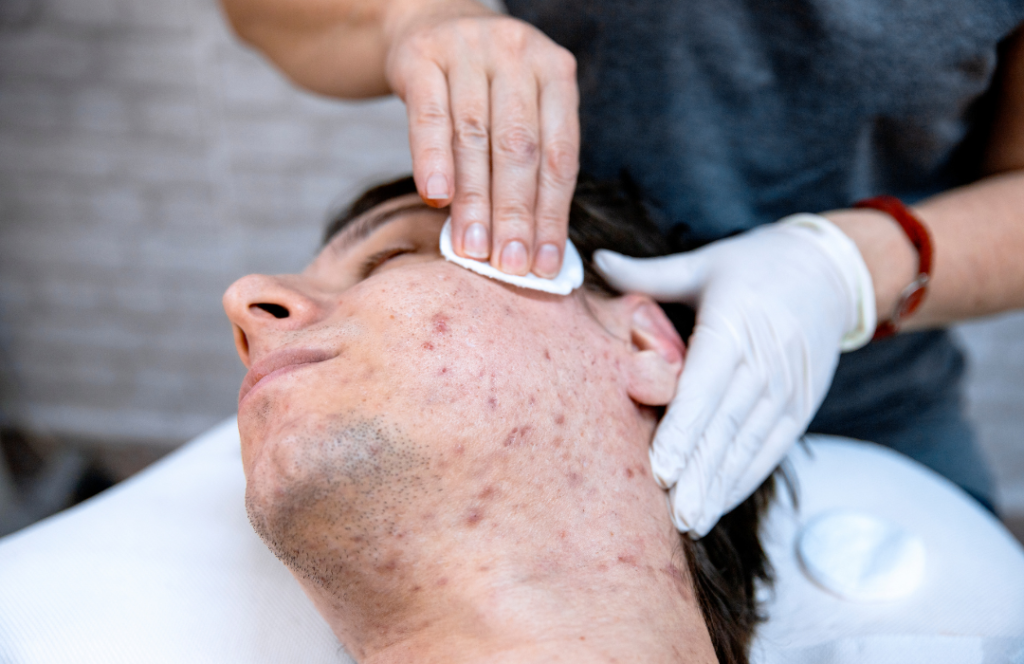
You might have stubborn acne that just won’t quit, despite numerous spot treatments or home remedies. In such cases, it’s wise to consult with a dermatologist at a clinic.
They can offer professional treatments, which are often the most effective solutions for challenging acne situations. Here are some professional treatments that can be game-changers for those tough acne battles:
Prescription topicals
Your dermatologist might prescribe topical treatments that are stronger than over-the-counter stuff. These can include retinoids (tretinoin), antibiotics, or formulations with higher concentrations of benzoyl peroxide or salicylic acid. They’re like the special forces of skincare, targeting acne directly at its source.
Oral medications
Sometimes, tackling acne needs an inside-out approach. Oral medications like antibiotics or isotretinoin (you might know it as Accutane) can be prescribed for more severe cases. These pills can do wonders, but they often come with a need for close monitoring due to potential side effects, so it’s a team effort with your doc.
Chemical peels
Chemical peels sound way scarier than they are. They involve applying a solution to your skin that helps exfoliate and remove dead skin cells, revealing fresher, clearer skin underneath. It’s like giving your skin a new beginning.
Laser and light therapies
Welcome to the future of skincare! Lasers and light therapies can help reduce acne and acne scars. These treatments work by targeting different aspects of acne formation or by stimulating the skin to heal itself.
Extraction and drainage
Sometimes, you just need to get the gunk out, and that’s where extraction comes in. Done by a professional, this can help clear clogged pores and reduce the chance of scarring.
Corticosteroid injections
Corticosteroid injections can be a lifesaver if you get a huge and painful cyst. They reduce swelling and can help prevent scarring.
Skincare Tips to Prevent Future Acne
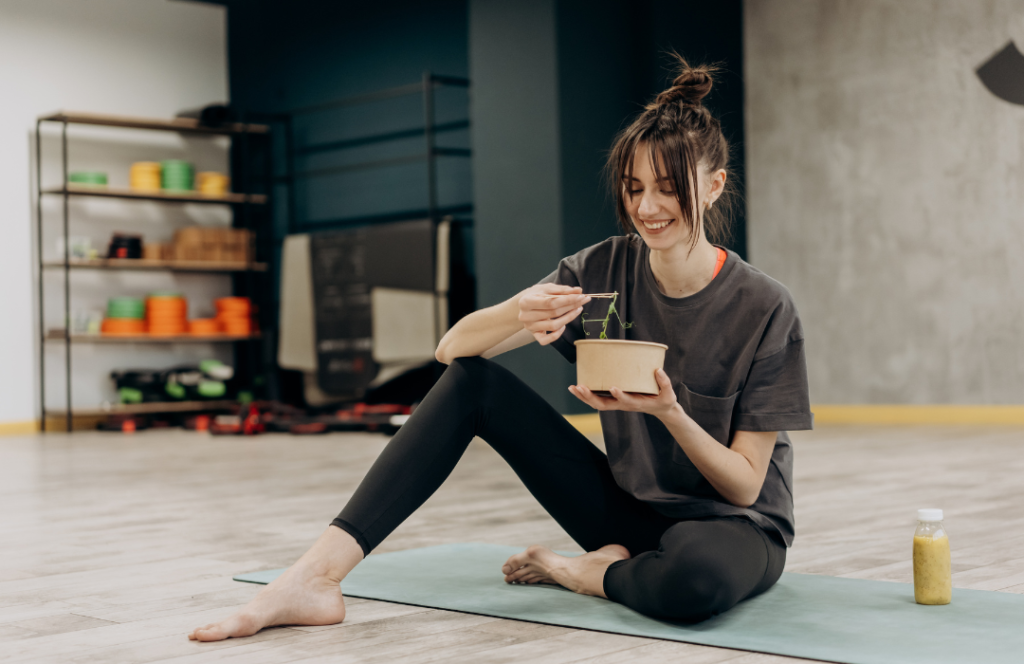
If you’re tired of deciding whether to pop or not to pop your annoying pimples, I’ve got something even better for you.
Let’s focus on preventing those pimples from showing up on your beautiful face in the first place!
1. Eat healthy to nourish your skin
Think of food as fuel for your skin. Eating a balanced diet rich in fruits, veggies, whole grains, and lean proteins can really make a difference. Foods high in omega-3 fatty acids, like salmon and walnuts, are especially great. They’re like power food for your skin, helping to reduce inflammation (which is a big deal when it comes to acne).
2. Beauty sleep is real
You’ve probably heard about getting your beauty sleep, right? Well, it’s not just a saying. Getting enough zzz’s is crucial for your skin. During sleep, your skin gets a chance to repair and rejuvenate itself. So, try to hit the hay early and aim for 7-9 hours of sleep. It’s like hitting the reset button for your skin every night.
3. Exfoliate, but choose wisely
Exfoliation is key in any skincare routine, especially if you’re prone to acne. But here’s the kicker – it’s all about finding the right exfoliant. BHAs (Beta Hydroxy Acids) and AHAs (Alpha Hydroxy Acids) are your friends here.
BHAs, or salicylic acid, are awesome for oily and acne-prone skin as they go deep into the pores to clear out all the gunk.
AHAs, like glycolic acid, are great for surface-level exfoliation and can help with skin texture and pigmentation. Just remember, don’t overdo it – a couple of times a week should be enough.
4. Keep your skincare routine simple
When it comes to skincare products, less is often more. Stick to a simple routine that includes a gentle cleanser, a moisturizer that suits your skin type, and sunscreen. Overloading your skin with too many products or harsh ingredients can irritate your skin and make acne worse.
5. Stay hydrate
And last but not least, drink plenty of water! Staying hydrated helps your skin stay balanced and can even help with acne. Think of water as an internal moisturizer for your skin.
Conclusion
In the end, it’s really important to sterilize your skin and hands if you decide to pop that pimple. Keeping your hands away from your face as much as possible is a good habit, not just for pimples but for your skin’s overall health.
Remember, if you’re going to pop a pimple, do it in a clean, sterile way to avoid any skin problems.
But more often than not, it’s best to leave that pimple alone or ask a dermatologist for help. By taking care of your skin and being mindful of these tips, you’ll be on your way to clearer, healthier skin!

